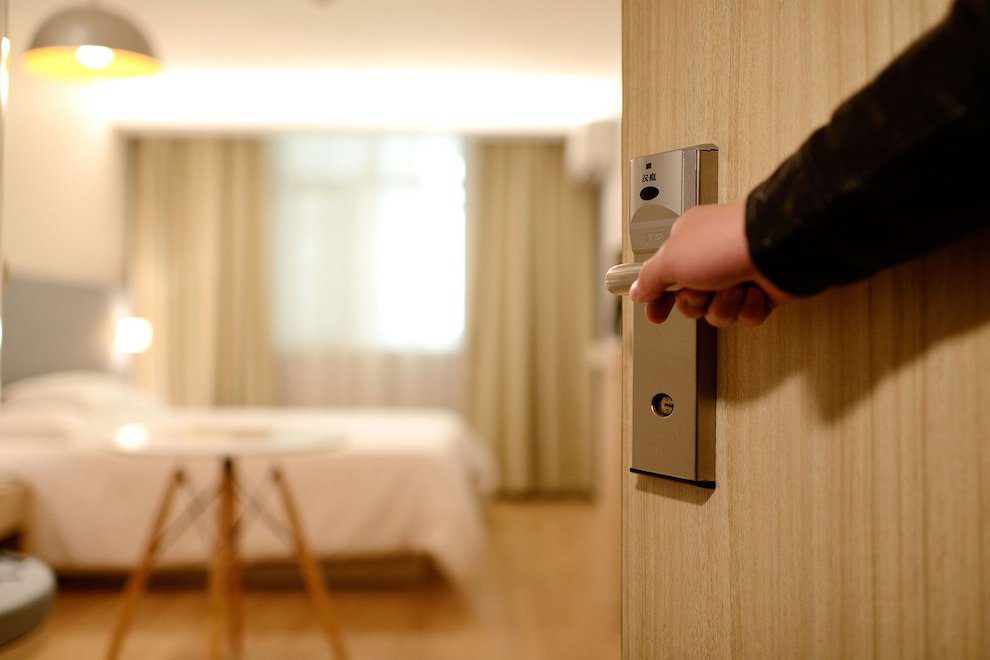A research paper involving an IFTM scholar suggests that budget hotel operators catering to mass-market Chinese travellers should take note of their cultural values and behavioural norms. Doing so could boost business.
The research was conducted by IFTM Professor Dr. Eve Ren Lianping, in association with Dr. Qiu Hanqin, Dean of the College of Tourism and Service Management at Nankai University in Tianjin, Mainland China. The project included the development of a measurement scale consisting of 3 “dimensions” – as defined by the researchers – and an aggregate of 11 items, in order to explore the cultural values and behavioural norms of mass-market Chinese travellers.
The first dimension of the measurement scale covered “Chinese traditional virtues”. It featured 5 items: pragmatism/practicality; having a sense of obligation for family; being in harmony with others; the ability to work hard; and the valuing of sincerity. The second dimension, relational values, included moderation, group conformity, and face – the latter a Chinese concept related to cultural understanding of respect, honour and social standing. The final dimension of the measurement scale was choice norms, encompassing a total of 3 items: how friends’ brand choices might influence a Chinese consumer’s behaviour; use of online reviews as a source of information, and the degree to which such consumers relied on online information.
Dr. Ren and Dr. Qiu said the topics featured in their scale reflected not only behavioural norms related to the evolution of Chinese culture and technology, but also “deep-rooted values” of mass-market Chinese consumers.
“For example, cultural values, such as ‘face’ and ‘harmony,’ are identified as important for Chinese travellers and influence their behaviour,” the researchers wrote. “The findings of this study confirm the importance of interpersonal relationship” for Chinese travellers, including via “specific values such as conformity and moderation,” they added.
“Based on these findings, budget hotel managers and service staff should foster a harmonious environment in the hotels, where the customers are respected and treated with politeness.”
The comments were featured in the paper “Developing a measurement scale for cultural values and norms of Chinese mass travelers”, published last year in the Journal of Hospitality and Tourism Management.
The study results were based on a 2-stage process: an initial pilot questionnaire answered by 155 budget hotel customers in major cities in Mainland China; followed by a revised version of the questionnaire, answered by 371 budget hotel clients.
Value-for-money options
Dr. Ren and Dr. Qiu highlighted in their academic paper that while budget constraints were the main reason many customers opted for low-cost accommodation, Chinese clients were particularly keen on getting good deals when booking a hotel room. That was in part because of Chinese traditional virtues such as being pragmatic and practical.
Many of the mass travellers had gone from “being poor” to being “relatively well-off and are thus cautious in spending money,” the researchers pointed out, in a reference to the rapid economic development of China over the past few decades. “The implication derived from this finding is that lodging providers need to create value-for-money accommodation” for mass-market Chinese travellers.
The scholars also noted that the way mass-market Chinese travellers chose their accommodation was changing, influenced by the rapid development of tourism and hospitality in China. “Instead of relying mostly on the national-star rating recommendation,” Chinese mass-market travellers “now attach importance to the brands of the hotels,” Dr. Ren and Dr. Qiu wrote. They suggested that hotels could capitalise on this trend, by making use of “effective quality signals, such as brands, for market communication”.
The researchers said their results additionally showed that mass-market Chinese travellers were “heavily influenced” by their friends’ choices regarding preference of hotel brands. “Choosing brands that their friends often use is ‘face’-saving and an indication of group norm conformity,” the authors said. Therefore, it was important for hotels to ensure the effectiveness of their respective online and offline customer relation management processes. Should any Chinese client have a negative experience, it could influence the choice of many others, since Chinese travellers “like to communicate among each other on the product.”
The research also indicated that mass-market travellers were increasingly reliant on ‘word-of-mouth’ delivered online, when making their accommodation choices. The implication of this finding was that “lodging providers should focus more on online marketing, instead of relying solely on travel agencies and other traditional marketing channels” to promote their properties, Dr. Ren and Dr. Qiu said.
They added hoteliers should also give “sufficient attention” and effort “to managing online customer relationships because the impact from online reviews and complaints can be significant”. They further noted: “Timely communication and ‘rescue’ are necessary since any remaining grumps may affect other customers’ decision making.”
More info
Dr. Qiu Hanqin heads the College of Tourism and Service Management at Nankai University, in Tianjin, Mainland China. Dr. Qiu has a PhD from the University of Strathclyde, in Scotland, United Kingdom. Her research interests include inbound and outbound tourism relating to China, tourism development and policy issues in the Asia-Pacific region, consumer behaviour, and innovation in tourism education. She has published more than 80 scholarly articles in major international academic journals.
https://doi.org/10.1016/j.jhtm.2018.04.006









